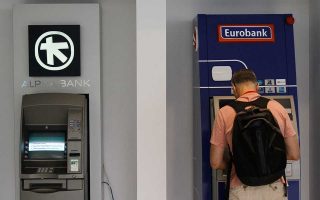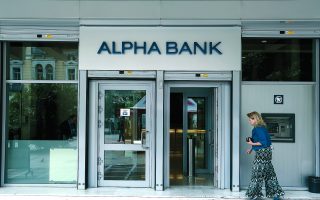Banks go a long way toward erasing NPLs

The nonperforming loans of Greeks banks were reduced to 29.4 billion euros at the end of June, which constitutes a considerable drop by €31.6 billion or 69% from a year earlier, according to official data.
The index of NPLs declined at the end of the year’s first half to 20.3% from 43.6% at end-June 2019 – i.e. the summer before the pandemic – while according to the plans banks have announced, the rate will drop to below 10% by end-2021 or in early 2022.
The Finance Ministry stated on Wednesday that the bad-loan reduction is the outcome of the Hercules program and specific interventions such as the Gefyra 1 and 2 programs, as well as the loan suspensions and arrangements banks have implemented. Notably, banks have planned to incorporate bad loans adding up to €50 billion in the Hercules program.
The pandemic has also led to the containment of new bad loans, as bank estimates restrict those created due to the pandemic-incited economic crisis to below 20% of the loans under moratorium. Based on the first-half figures banks have released, the vast majority of debts placed under moratorium are now being serviced again.
According to Euroxx Securities records, out of the €5.5 billion Alpha Bank arrears placed in suspension, only €300 million are now being delayed, while estimates regarding the total nonpayment of frozen obligations come up to €800 million – i.e. 15-20% of all suspended debts.
Eurobank’s forecast is similar: for 20% of suspended loans to turn bad, out of a total €4.9 billion. By end-June only €300 million had been delayed, though another 10% remained under moratorium as it concerned the tourism sector.
Newly delayed Piraeus Bank debts amounted to €600 million, or just under 10% of its total suspended loans worth €6.1 billion. Piraeus aligns itself with the other banks, expecting new NPLs to amount to only a fifth of those under moratorium. As for National, it anticipates 15-20% of frozen loans to turn bad, amounting to €450-600 million, though currently this rate only stands at 3% of the suspended credit.
The two Gefyra programs, subsidizing mortgage holders and corporate debtors, have incorporated over 200,000 borrowers.





